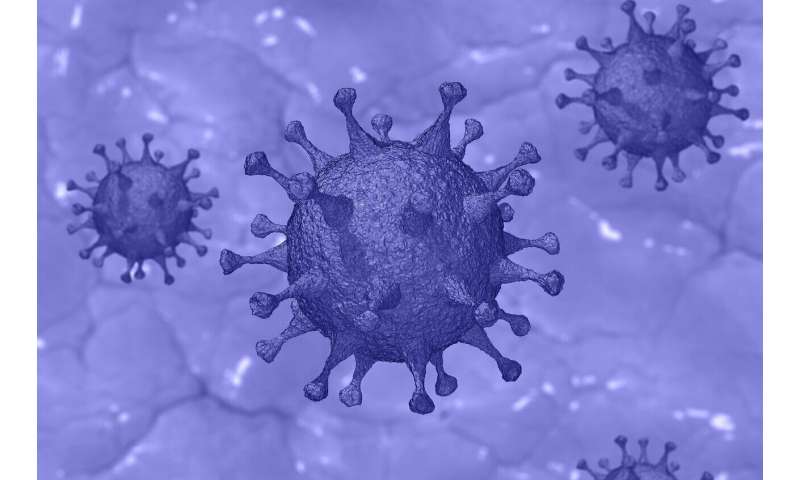
Researchers may have come one step closer toward understanding how the immune system contributes to severe COVID-19. In a study published in Science Immunology, researchers at Karolinska Institutet in Sweden show that so-called natural killer (NK) cells were strongly activated early after SARS-CoV-2 infection but that the type of activation differed in patients with moderate and severe COVID-19. The discovery contributes to our understanding of development of hyperinflammation in some patients.
SARS-CoV-2 infection can in some cases cause severe COVID-19 disease. Although this is thought to be partially driven by a misdirected innate immune response, many aspects of the early immune response to the infection remain elusive.
Researchers at Karolinska Institutet have now, in collaboration with colleagues at the Karolinska University Hospital, investigated the early response to SARS-CoV-2 infection of NK cells, a cell type in the immune system known to be important in the control of viral infections.
The study analyzed blood samples from 27 patients with moderate (10) and severe (17) COVID-19 infection. The researchers also included blood samples from 17 healthy individuals as a control group. The result showed that NK cells were strongly activated in the blood shortly after infection.
“The type of NK cell activation detected differed considerably in patients with moderate compared to severe disease,” says Niklas Björkström, physician and immunology researcher at the Center for Infectious Medicine, Department of Medicine Huddinge, at Karolinska Institutet, who led the study.
It is likely that the type of NK cell response observed in SARS-CoV-2 infected patients with moderate disease is a canonical NK cell response shared between many types of viral infections, according to the researchers.
However, patients who developed severe COVID-19 had a different composition of responding NK cells. These patients’ NK cells generally had higher expression of the proteins perforin, NKG2C and Ksp37, which according to the researchers reflect a high presence of so-called adaptive NK cells. Adaptive NK cells have an even greater ability to kill target cells compared to other NK cells.
The researchers are now investigating to what extent the NK cell-mediated immune response observed in the critically ill patients might contribute to COVID-19 severity, and the extent to which other parts of the response may be beneficial.
“Taken together, our findings provide additional insights into immune reactions in early SARS-CoV-2 infection and ensuing COVID-19 disease,” Niklas Björkström says. “We hope that these insights will contribute to the improved care and treatment of patients with severe COVID-19 disease.”
Source: Read Full Article
